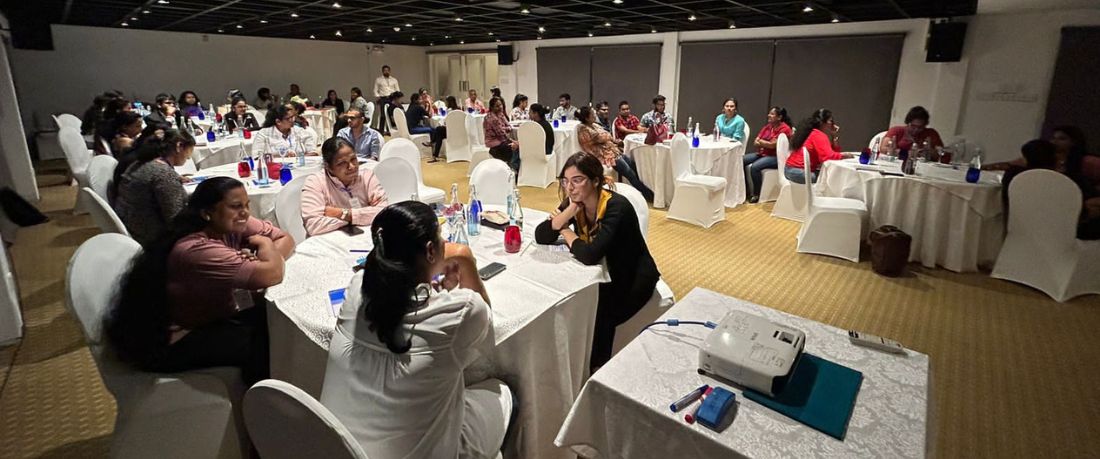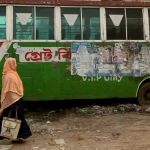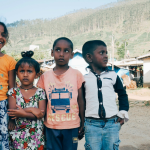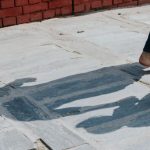In September 2023, I traveled to Bentota, Sri Lanka to attend iProbono’s second iteration of the Access to Justice (A2J) Programme. A2J was developed as part of a wider organisational mission to strengthen the capacities of stakeholders working in the justice ecosystem. iProbono launched A2J in 2021 in Kosgoda, Sri Lanka, where 20 early-career lawyers were trained to respond effectively in cases of violence and discrimination against women, children and the LGBT+ community. A conversation between iProbono’s Equality Law Director, Aritha Wickramasinghe, and the Inspector General of the Police in 2022 – in which the latter promised to proactively encourage the police to support to LGBT+ community-generated momentum to expand the A2J programme this year. The events were expanded to include not only lawyers but also the police.
Supported by the US Embassy in Sri Lanka and Sri Lanka Unites, a youth movement working towards providing hope and facilitating reconciliation in Sri Lanka, A2J 2023 attracted approximately 40 participants. This was nearly double the number of participants compared to 2021. Fifteen lawyers, eighteen police officers and five activists representing five different provinces in Sri Lanka were part of the events. As iProbono’s lead for capacity enhancement in India, I was curious to observe how justice is actioned across the border. What kinds of approaches are taken to support women, children, and other vulnerable groups like the LGBT+ community in Sri Lanka? And what would emerge from a conversation between stakeholders of divergent backgrounds, positions, and worldviews? I wanted to find out more.
The programme was a three-day bilingual (English and Sinhala) residential training from 22 to 24 September. It was designed to serve as a conduit for meaningful dialogue between lawyers, police, and activists. This was achieved through an agenda that included technical legal training, panel discussions, and story-telling, interspersed with ice-breakers and interactive activities. I noticed that there were pre and post programme questionnaires circulated with everyone on the first and last day respectively to get an insight about a participant’s understanding of certain legal issues and also to analyse the impact of the sessions.
The iProbono team in Sri Lanka also collaborated with the trainers to develop emergency toolkits in English, Sinhala and Tamil, for lawyers and police officers. These contained critical information on statutory provisions, international obligations, case laws, and best practices pertaining to violence against women, children, and LGBT+ individuals. The idea behind these toolkits was that they can be used to prevent further victimisation of those coming in contact with the justice system.
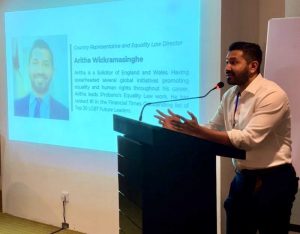
Aritha Wickramasinghe, iProbono’s Equality Law Director, commenced the 2023 A2J programme.
The first day of the programme began with iProbono’s Equality Law Director Aritha Wickramasinghe’s welcome speech. I heard his inspiring call to action: “What attracted us to the legal profession? It wasn’t to read a 200-page loan agreement or a very boring non-disclosure agreement. We wanted to pursue this profession because we believed in justice, and just like lawyers, police officers also pursued and chose this career not because you want to lock people up in jail, but because you wanted to pursue justice”.
This was followed by a panel discussion on professional ethics and pro bono lawyering featuring Dilrukshi Dias Wickramasinghe, President’s Counsel, Jerusha Crosette-Thambiah, Attorney-at-Law and Aritha Wickramasinghe. This panel provided insight into the skills a lawyer must possess to pursue justice for their clients and covered the value of pro bono lawyering in early career lawyers. Throughout the panel discussion, I noticed that participants sat with their colleagues, grouped according to their professions. However, by the end of the day, as a result of the ice-breaking session, I saw everyone moving around the room to sit with new people. This, I believe was the first step towards open and honest channels of communication among diverse stakeholders.
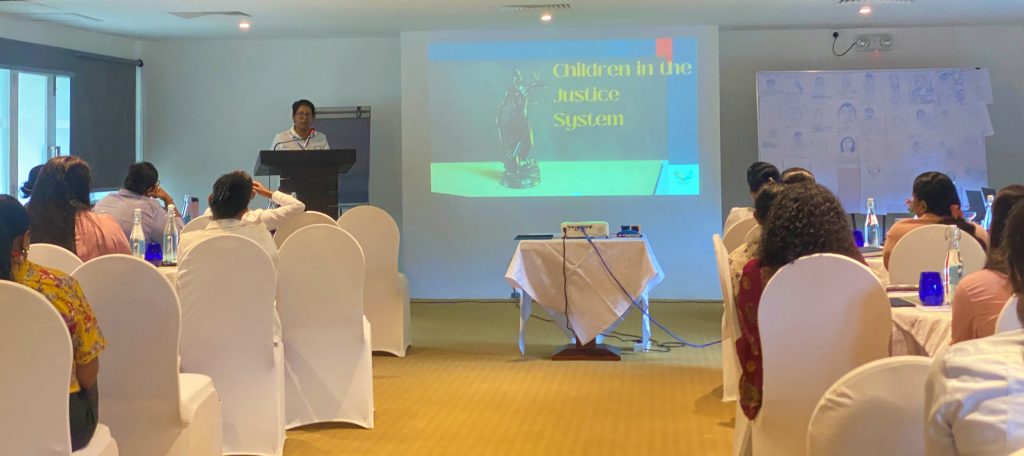
Milani Salpitikorala, senior lawyer and executive director of Child Protection force, conducting training on child rights.
The second day began with child rights training conducted by senior lawyer and executive director of Child Protection Force, Milani Salpitikorala, and her team. They informed participants about the key provisions of the National Child Protection Authority Act No. 50 of 1998, Children and Young Persons Ordinance No. 48 of 1939 and Assistance to and Protection of Victims of Crime and Witnesses Act No. 4 of 2015. They discussed practical information and best practices on victim care and sensitisation, as well as for cases where children are offenders. Their session also shed light on some of the more nuanced offences committed in cyberspace against children, like sexual exploitation and harassment.
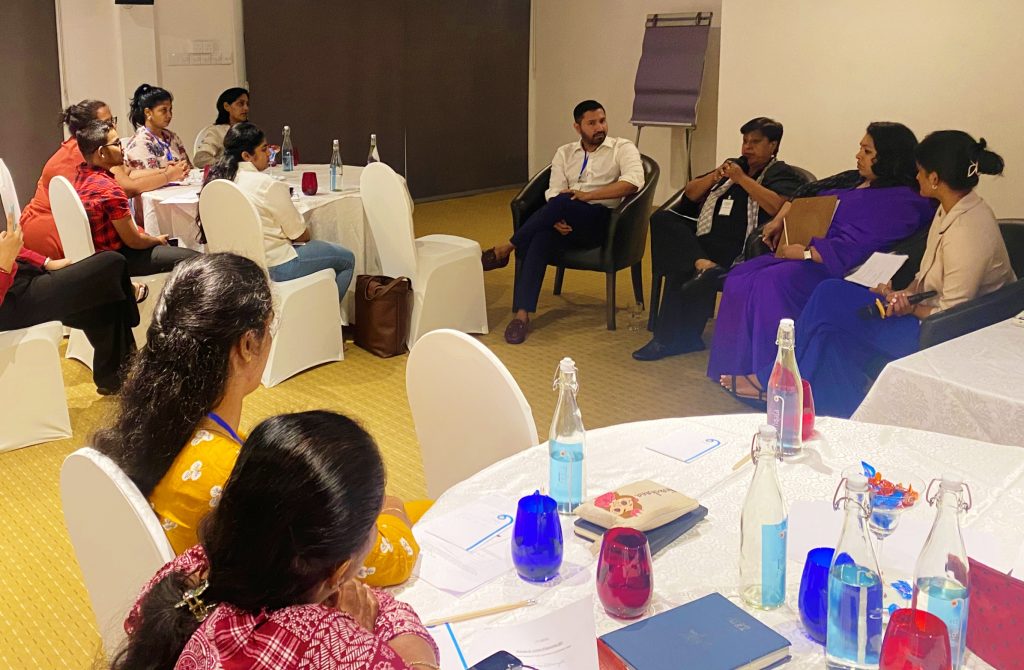
Former Solicitor General Dilrukshi Dias Wickramasinghe, P.C delivering a guest lecture on issues concerning law enforcement.
The training was followed by a guest lecture by former Solicitor General Dilrukshi Dias Wickramasinghe, P.C. which addressed various issues concerning law enforcement, including the consequences of malicious conduct, unlawful acts and exceeding powers vested under the Police Ordinance.
The day ended with Jerusha Crosette-Thambiah conducting a training on violence against women, drawing on her experience as a seasoned women’s rights advocate and lawyer specialising in sexual and gender-based violence (SGBV). She focused on four predominant offences: rape, sexual harassment, domestic violence and online gender-based violence.
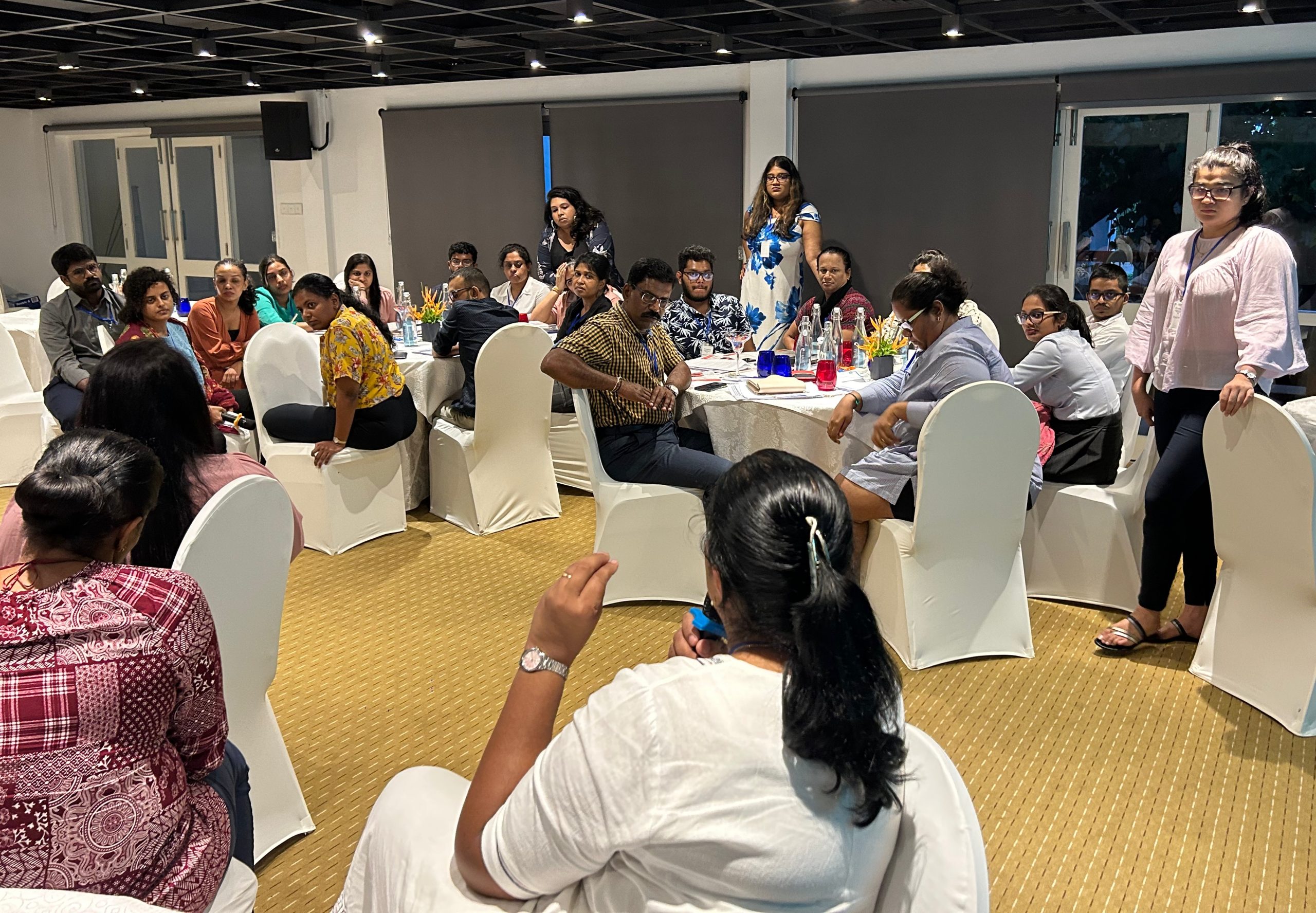
Jerusha Crosette-Thambiah conducting training on violence against women.
As part of the interactive activity, I saw that Jerusha clustered the participants into groups of three: lawyers, the police officers and activists. They were then asked to share their experiences and assumptions. This allowed participants to voice their expectations to improve policing and the protection of all persons against SGBV.
An interesting moment came when I heard activists raising issues faced by victims of domestic violence who seek support from the police, but are often refused. This led to frank conversations between the participants, through which the lawyers and the police got an opportunity to discuss how victims could be better supported. In fact, the pre and post-programme questionnaires also brought this issue to light. They showed that at the start of the programme, there was some ambiguity among some of the lawyers and police regarding steps to be taken when a woman approaches them for support in reporting a domestic violence incident. By the end of the event, however, there was not only clarity among all participants on the legal obligations of a police officer and a lawyer in such cases but also a realisation of the challenges they face while carrying out their respective duties.
The final day began with a virtual session on Zoom by Deputy Inspector General of Police, Renuka Jayasundara. Highlighting the duties of police and calling for better protection of the LGBT+ community, DIG Renuka said: “LGBT individuals are reluctant to expressly identify themselves because of shame and condemnation. Sri Lanka is multicultural we must evolve with the law and shape our services accordingly”. Her session drew attention to government circulars, statements and commitments by the state to protect the LGBT+ community. Radika Gunaratne, lawyer and veteran journalist, on the other hand, provided insights into the role of the legal community while supporting LGBT+ clients. She spoke about the particular issues faced by the LGBT+ community, for example, the difficulty in obtaining a gender recognition certificate. The session ended with an activity that brought together parties to solve case studies based on real-life issues faced by the LGBT+ community, such as wrongful confinement, arbitrary arrests as well as invasive and forced anal/vaginal examination. The aim of these exercises was to promote understanding among the participants on how the police see these issues versus how a lawyer or activist sees them.
The day also featured two compelling storytelling sessions, led by Ishara De Silva and Bhoomi Harendran, who offered a glimpse into their lived experiences. Ishara opened up about being a transgender individual in Sri Lanka and said: “A person who hasn’t experienced a famine will never understand what it is like to be hungry. In the same way, a person who has never experienced this issue will never understand, no matter the repeated explanations”.
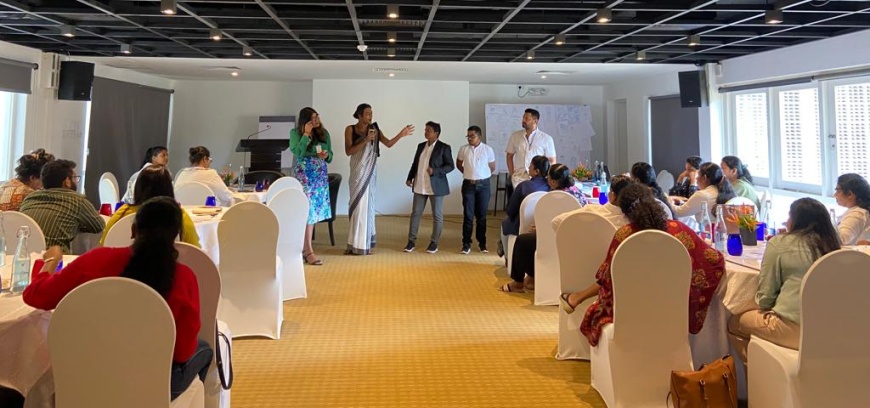
Transgender activist Bhoomi Harendran shares her experiences of being a transgender individual in Sri Lanka.
Their narratives reminded me that the challenges of navigating the justice system and ensuring equal protection are much the same across borders. They also reminded me of the steps that we can take together to foster greater understanding and inclusivity.
During these three days, I detected a palpable shift in the atmosphere where participants were pro-actively switching tables to sit with other groups, sharing life experiences during tea breaks, and engaging with the trainers and speakers after their sessions. I witnessed the emergence of a multi-stakeholder group of allies committed to the shared objective of ensuring equitable access to justice.
At the start of the programme, Aritha had said, “By the end of A2J Programme this weekend, my only hope is that we become friends and allies to support one another”. I wholeheartedly believe that we, as a collective, accomplished precisely that. These are the lessons I took back with me from Sri Lanka.
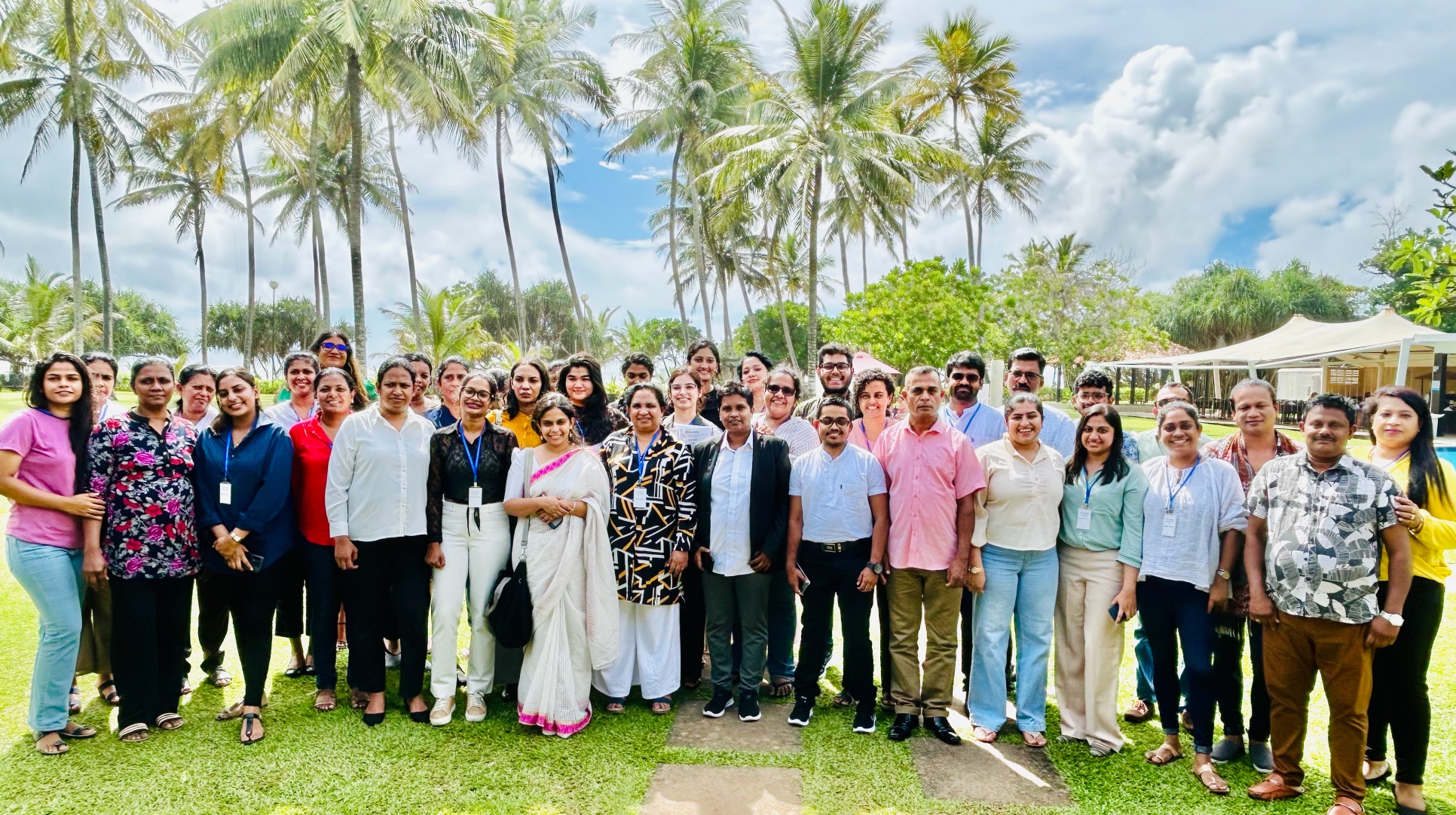
Participants at the Access to Justice Programme 2023.
Priya Watwani – Senior Program Officer, India.


